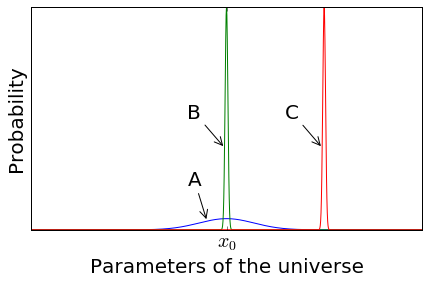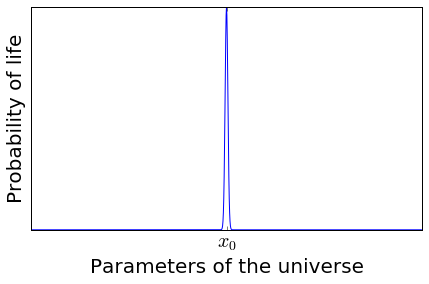This is the fourth and final part of a series discussing the Fine Tuning argument (FTA). The outline is here.
Mundane multiverses
A “multiverse” is a set of multiple sub-universes, which together comprise a single super-universe. The idea is that the universe that we know is a single sub-universe, and there are multiple other universes like ours. So we can imagine another sub-universe where everything is the same, except that ever coin flip comes up on the opposite side. Or a sub-universe where everything is the same, but we’re all evil and have goatees. Or another sub-universe where
Typically, when physicists talk about parallel sub-universes, what they mean are non-interacting sub-universes. So, you can’t ever talk to the evil goatee’d version of yourself. Although, people sure like to imagine that sort of thing in sci-fi. So let’s talk about the kind of parallel universe that we could, in principle, interact with. What if I told you that this kind of parallel universe is one we already know exists?
To travel to a parallel universe, just hop in a space ship, and travel 4 lightyears over to Proxima Centauri. You will find a universe exactly like ours, except that the sun is different, and the planets are different, and the constellations are different.


